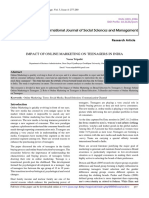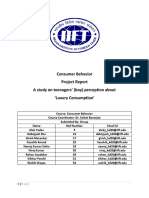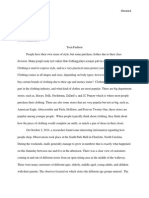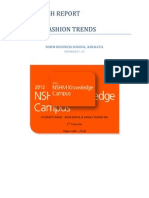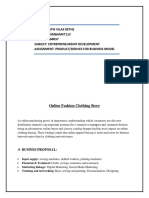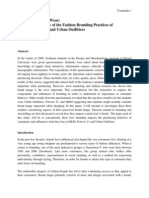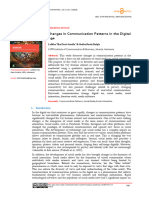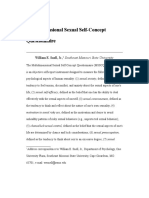0% found this document useful (0 votes)
23 views15 pagesBharatiya Vidya Bhavan'S Vidya Mandir: Mrs. Menon Girja T
The document presents an ASL project on 'Brand Mania and Teenagers,' exploring how branding influences teenagers' identity and consumer behavior. It includes interviews and questionnaires revealing that teenagers are highly brand-conscious, often associating brands with social status and self-image. The project emphasizes the role of advertising and social media in shaping teenagers' perceptions of brands and their purchasing decisions.
Uploaded by
Anaswar SunikumarCopyright
© © All Rights Reserved
We take content rights seriously. If you suspect this is your content, claim it here.
Available Formats
Download as PDF, TXT or read online on Scribd
0% found this document useful (0 votes)
23 views15 pagesBharatiya Vidya Bhavan'S Vidya Mandir: Mrs. Menon Girja T
The document presents an ASL project on 'Brand Mania and Teenagers,' exploring how branding influences teenagers' identity and consumer behavior. It includes interviews and questionnaires revealing that teenagers are highly brand-conscious, often associating brands with social status and self-image. The project emphasizes the role of advertising and social media in shaping teenagers' perceptions of brands and their purchasing decisions.
Uploaded by
Anaswar SunikumarCopyright
© © All Rights Reserved
We take content rights seriously. If you suspect this is your content, claim it here.
Available Formats
Download as PDF, TXT or read online on Scribd
/ 15














